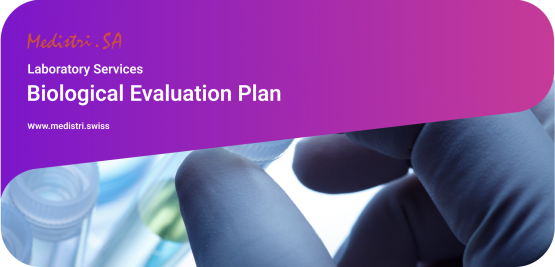(Download: Biological Evaluation Plan in PDF by Medistri)
Medical Devices need to assess the biocompatibility of their medical device materials and processes by taking a risk-based approach to their biological safety evaluations.
A Biological Evaluation Plan (BEP) is an essential step in the medical device production process. This plan is aligned with the ISO 10993, the international series of standards for the biological evaluation of medical devices.
The Biological Evaluation Plan is a requirement that will examine available information concerning the medical device’s configuration, material composition, manufacturing, intended use, any extant testing information and clinical history. The Biological Evaluation Plan will then identify any biocompatibility gaps that exist for the medical device and provide expert recommendations for how to best fill these gaps based on ISO 10993-1 and product or country specific documentation.
The biological evaluation process is a cohesive effort that begins with gaining insight into the medical device, its intended usage, and associated risks. Following the creation of an ISO 10993-compliant BEP, biocompatibility testing is performed, and results are interpreted alongside detailed risk assessments.
The Biological Evaluation Plan, together with the final overall biological evaluation, can help the manufacturer fully understand the device and its biocompatibility.
The Biological Evaluation Plan (BEP) is crucial for several reasons:
- Safety Assurance: The BEP is designed to ensure the safety of medical devices. It helps identify any potential biological risks associated with the device, such as cytotoxicity, sensitization, irritation, acute systemic toxicity, subacute/subchronic toxicity, genotoxicity, implantation, and hemocompatibility.
- Regulatory Compliance: The BEP helps demonstrate compliance with international standards like ISO 10993, which is often a requirement for regulatory approval.
- Risk Identification and Mitigation: The BEP helps identify any gaps in biocompatibility data and provides recommendations on how to address these gaps. This proactive approach helps mitigate risks early in the device development process.
- Avoid Unnecessary Testing: A well-prepared BEP can help avoid unnecessary testing by using a risk-based approach to determine the necessary biocompatibility tests.
- Product Quality and Market Confidence: A thorough BEP contributes to the overall quality of the medical device. It also builds confidence among stakeholders, including patients, healthcare providers, and regulatory bodies, about the safety of the device.
Creating a BEP is a meticulous process that involves gathering and reviewing a significant amount of information. It’s always recommended to start this process as early as possible in the medical device development cycle to ensure all potential biological risks are adequately addressed - however, a plan can be created at whatever stage a medical device is at and incorporate all pertinent testing information.
The Biological Evaluation Plan is created based on the following questions:
- What are the clinical use of the product?
- What are the types of dermal contact? (tract, muscle-invasive, bone, bloodstream…)
- Is degradation expected?
- What is the dermal contact time?
- What are the compositions of the materials forming the medical device?
- Can we define representative portions of the medical device that are in contact with the patient or with the liquid that’s in contact with the patient?
- Is there any historical data on the biocompatibility/ materials/ according to their categorisation?
ISO 10993-1, titled as “Biological Evaluation of Medical Devices - Part 1: Evaluation and Testing within a Risk Management Process”, is the most widely used standard for assessing the biocompatibility of medical devices and materials. It provides a framework for determining the appropriate biocompatibility steps for planning a biological evaluation.
ISO 10993 states that “The biological evaluation shall be planned, carried out, and documented by knowledgeable and experienced professionals.” Our laboratory takes into consideration the materials, processing, and historical use of the device. This allows to perform a comprehensive assessment of biological responses for each medical device concerning its safety.
Our laboratory takes into consideration the materials, processing, and historical use of the device. This allows to perform a comprehensive assessment of biological responses for each medical device concerning its safety.
🎯 To learn more about Medistri’s Biological Evaluation Plan, visit on our website here or directly contact our team at contact@medistri.swiss.
- The Medistri Team
#Medistri
